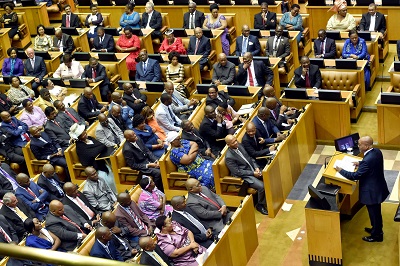Cape Town, (Asian independent) The South African Parliament issued a statement on the success of the 15th BRICS Summit held in Johannesburg, hailing the outcomes of this “historic” summit as a “testament” to the visionary leadership and unwavering commitment of the BRICS nations.
“The 15th BRICS Summit outcomes encapsulate a robust spirit of international collaboration, underscoring multilateralism, peaceful conflict resolution, and the pursuit of sustainable development,” said the statement on Saturday.
It added that the summit’s commitment to addressing economic inequality, fostering growth and exploring innovative financial solutions promises to bolster not only the BRICS nations but also resonate as a source of progress and stability for Africa and the rest of the world, Xinhua news agency reported.
“By advocating for global financial reform, encouraging people-to-people exchanges and championing the needs of the Global South, the Summit sets a precedent for equitable development, cultural understanding and inclusive cooperation that stands to uplift economies, strengthen partnerships and create a more harmonious global landscape,” said the statement.
In the statement, the South African Parliament also commended the collective decision to expand the BRICS family by welcoming new member states, namely Saudi Arabia, Iran, Ethiopia, Egypt, Argentina and the United Arab Emirates.
“This expansion signifies BRICS’ dedication to inclusivity, diverse perspectives and shared development. The benefits of this expansion ripple not only across Africa but resonate globally, particularly for developing nations, emerging markets, and the advancement of multipolarism,” the statement said.
“The expansion of BRICS represents a strategic step towards promoting cooperative development, innovation and the enhancement of economic ties,” it added.
“The inclusion of new member states brings fresh opportunities for harnessing collective strengths to tackle economic disparities, foster sustainable growth, and amplify the voices of developing countries on the global stage.”








